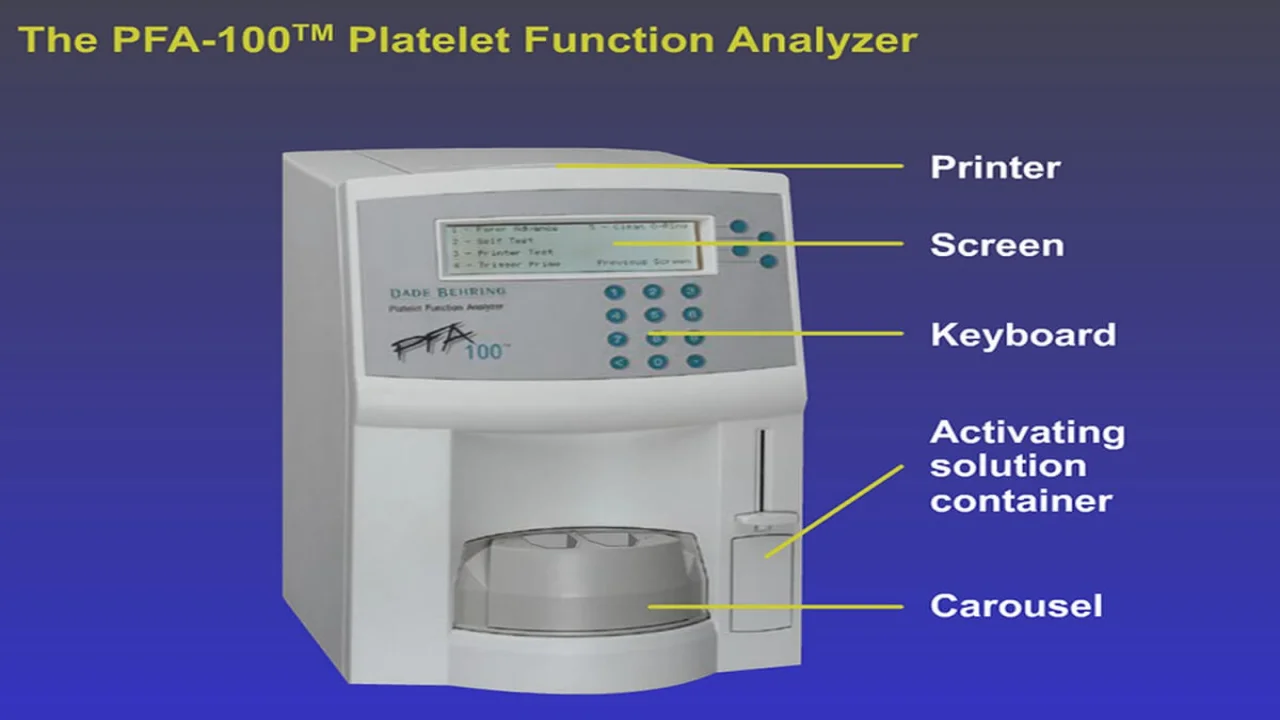Platelet Function Analyzer (PFA-100)
This is a newly introduced screening test for platelet function that assesses both platelet adhesion and aggregation. This method uses an instrument called as PFA-100.

This is a newly introduced screening test for platelet function that assesses both platelet adhesion and aggregation. This method uses an instrument called as PFA-100 in which anticoagulated whole blood is passed at a high shear rate through small membranes that have been coated with either collagen and epinephrine or collagen and ADP.
Platelets adhere to each membrane and gradually occlude an aperture at the centre of the membrane. The time required for complete occlusion of the aperture is called as closure time. Normal closure time is 1-3 minutes. The PFA-100 test is performed initially with the collagen/epinephrine membrane; if closure time is normal, there is no significant platelet function defect. If closure time with collagen/epinephrine is prolonged, test with collagen/ADP is carried out; if normal, aspirin-induced platelet dysfunction is the probable cause; if prolonged, other platelet function defect (acquired or inherited) is likely. This test is more sensitive than bleeding time to assess primary hemostasis, sensitive for detection of von Willebrand disease and easy to perform. However, in the presence of thrombocytopenia and anemia, closure time is prolonged. Also, in the presence of a strong clinical suspicion of a platelet function defect and normal PFA-100 result, further testing is still necessary.
The information on this page is peer reviewed by a qualified editorial review board member. Learn more about us and our editorial process.
Last reviewed on .
Article history
- Latest version
Cite this page:
- Comment
- Posted by Dayyal Dungrela